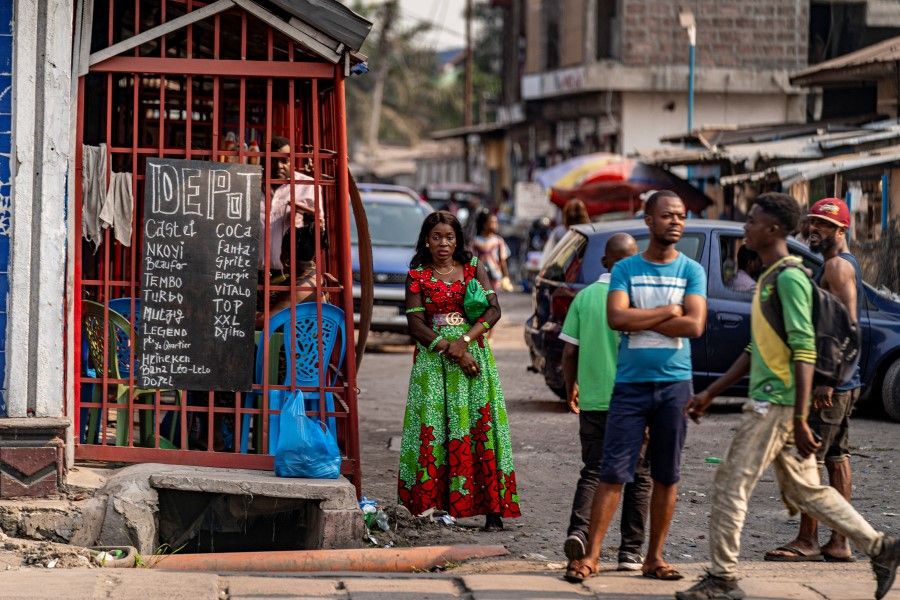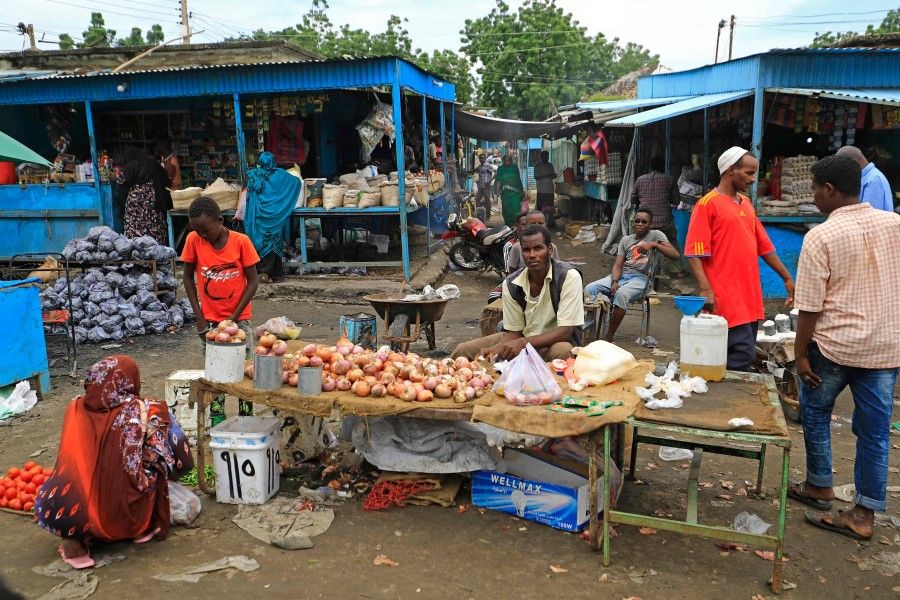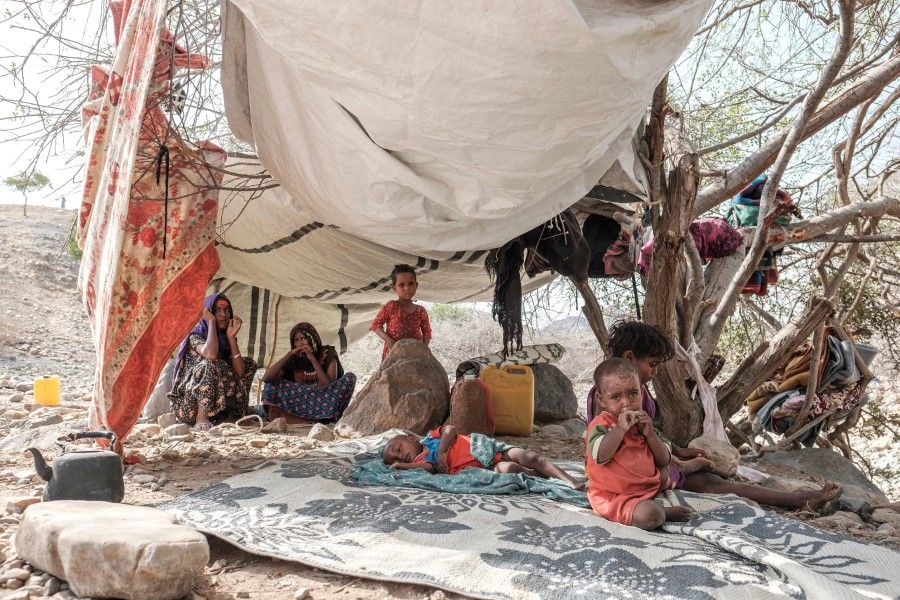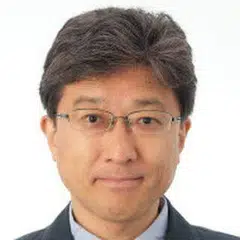How Japan can be a part of Africa's development amid great power competition

The Eighth Tokyo International Conference on African Development (TICAD8) will be held in Tunisia on 27-28 August amid rising international resource and energy prices brought on by the Russian invasion of Ukraine just as the world was recovering from the Covid-19 pandemic. African countries in particular are facing acute food security issues due to a shortage of wheat supplies from Russia and Ukraine.
As such, the conference will likely focus on how Japan can engage Africa not only in the short term, but also in the medium to long term. On its part, Russia's planned second Russia-Africa Summit in Addis Ababa, Ethiopia scheduled for November this year is now slated for mid-2023, while the US has announced that it will host the US-Africa Leaders' Summit in Washington DC on 13-15 December as a follow-up of the first summit in 2014 during the Obama administration. As 2022 draws to an end, it seems that the major powers are stepping up their diplomatic offensives involving Africa. In that regard, questions will be asked about how the uniqueness of Japan's Africa policy can be spelt out.
The evolving nature of the Forum on China-Africa Cooperation (FOCAC), which started out as an axis for strengthening economic relationships, but is now in the process of changing into a conference that is moving towards stronger political relationships with African countries, is definitely an issue to watch.

China's increasing engagement of Africa
In addition, China's engagement of Africa is also a matter of great interest to Japan. On 29-30 November 2021, a year before TICAD8, the Eighth Ministerial Conference of the Forum on China-Africa Cooperation (FOCAC) was held in Dakar, Senegal in West Africa. Taking into account past criticism of debt traps, and in line with more rigorous policies for screening loans to Africa, the funding announced at the conference was reduced to US$40 billion from the US$60 billion promised at the previous conference.
There were also signs of a change of focus, such as providing African countries with novel coronavirus vaccines - 600 million doses as a donation and 400 million doses through joint production by Chinese companies and African countries.
In addition, policies seemingly designed to strengthen political relations were included in the Dakar Action Plan (2022-2024). For instance, strengthening human resources training, including increasing the number of foreign exchange students; strengthening mutual cooperation at multiple levels, including local government, parliamentary, and political party levels; and promoting the sharing of means of governance through digital infrastructure development.
The evolving nature of FOCAC, which started out as an axis for strengthening economic relationships, but is now in the process of changing into a conference that is moving towards stronger political relationships with African countries, is definitely an issue to watch.
The refocusing on Africa as a region for business rather than development was striking.
How Japan can make a difference
Since the sixth conference held in Nairobi in 2016, TICAD has also significantly changed its character from a platform that only discussed African development to the "new TICAD", which reflects current diplomatic issues involving Japan. The Yokohama Declaration 2019, adopted at TICAD7 in Yokohama City in 2019, positioned "accelerating economic transformation and improving business environment through innovation and private sector engagement" as the first of three pillars of the conference.
Explicitly aware of China, the declaration states, "We strive to realise a free, fair, non-discriminatory, transparent, predictable and stable trade and investment environment and to keep our markets open. We also strive to ensure a level playing field to foster an enabling business environment."
The refocusing on Africa as a region for business rather than development was striking. However, to strengthen Japan's business involvement with Africa, which will account for one quarter of the world's population in 2050, it is necessary to consider that it [business participation] is closely related to the second pillar of "deepening sustainable and resilient society," which is concerned with science and technology innovation, as well as the third pillar, which is "strengthening peace and stability."
Many African countries are still beset with issues involving the second and third pillars. The situation continues to call for effective responses to create an environment conducive to Japanese corporations entering the market in a format that will expand their business.

As of late July 2022, the business environment in Africa has deteriorated even further due to the Russian invasion of Ukraine. For example, food supply and supply support activities to the Horn of Africa region have become extremely difficult, and to add insult to injury, the region is now faced with the kind of drought that occurs once every forty years, putting severe constraints on the realisation of "deepening sustainable and resilient society".
Somalia, in particular, has been placed in an extremely difficult situation as the country is said to depend on Russia and Ukraine for 95% of wheat imports distributed across the nation. In addition, Kenya and Uganda, which depend on Russia for a specific quantity of wheat imports, are faced with a food security crisis.
Japan has positioned effective support aimed at "deepening sustainable and resilient society" in the region as one of the key issues.
Political and economic stability is essential in the Horn of Africa region, which is considered one of the key regions for the African Continental Free Trade Area (AfCFTA), an initiative aimed at developing future markets by building railway networks.
From this perspective, Japan has positioned effective support aimed at "deepening sustainable and resilient society" in the region as one of the key issues. In addition, deepening cooperation between Japan and Africa on a range of global issues, such as infectious disease control, climate change, and measures to expand business areas symbolised by the Green Transformation (GX), are likely to be important policy issues in the future. It is a critical moment for Japan's diplomacy toward Africa.
